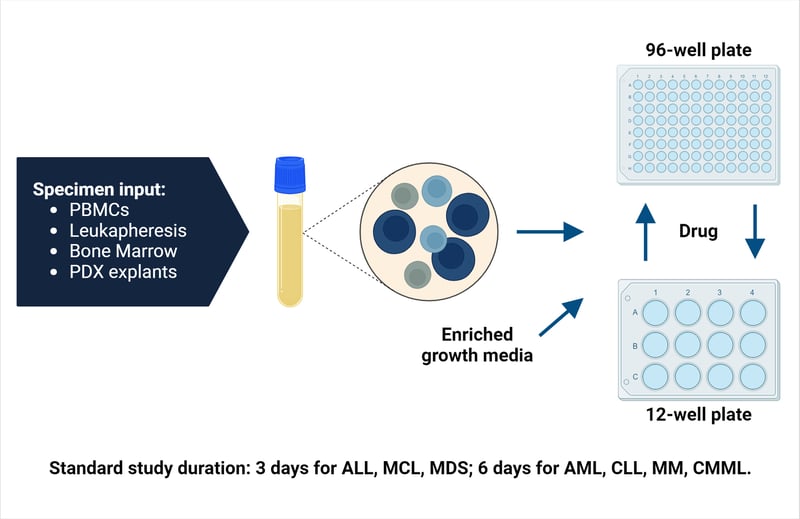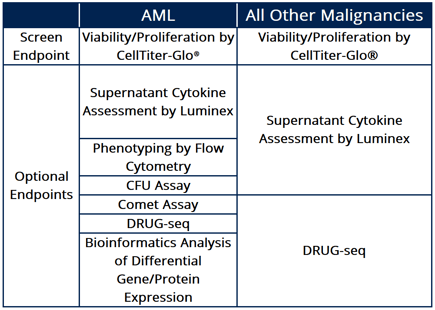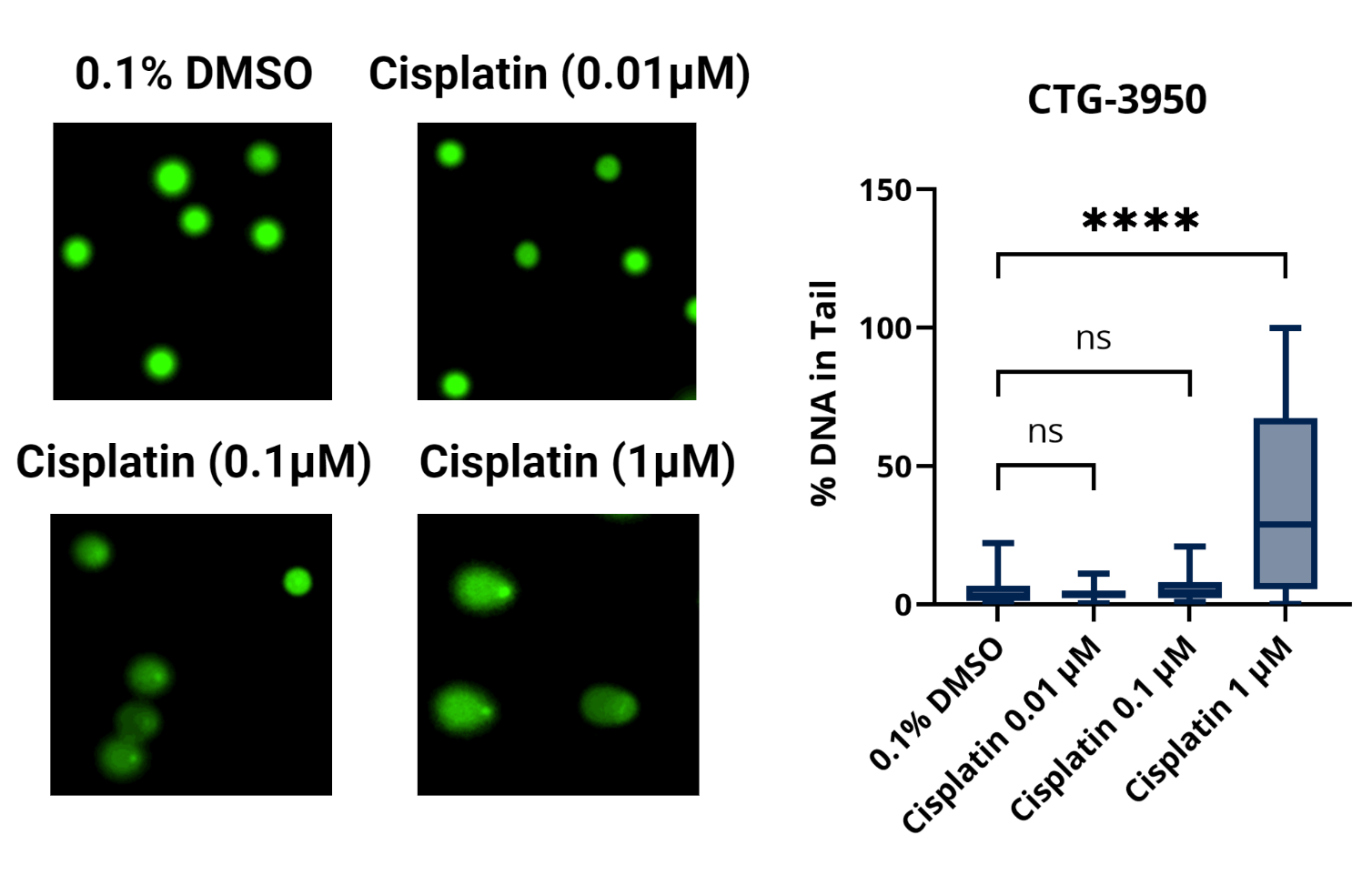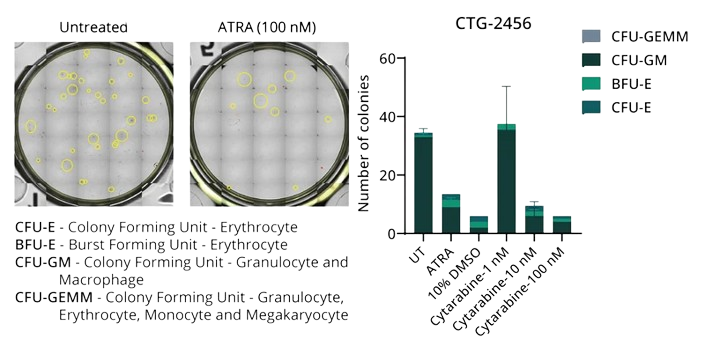The industry’s leading ex vivo platform for blood cancer research, delivering an extensive and unique repository of rare, clinically meaningful blood cancer models such as AML, ALL, CLL, MCL, and MM.
Enrolling until February 27, 2026
Empower Your Blood Cancer Research with Our Vast Model Collection
Unlock new possibilities in blood cancer research with our unparalleled bank of never-passaged, hard-to-source bank of primary models of key hematological malignancies. Featuring 30 AML, 6 T-ALL, 7 B-ALL, 10 CLL, 8 MCL, and 4 MM models, these clinically relevant models deliver patient-like responses, providing the reliability needed to advance your blood cancer drug discovery pipeline forward with certainty.
Clinically Relevant Models
Bank of primary patient blood cancer models that correlate with clinical outcomes
Industry's Largest Bank
Includes models representing major blood cancers including AML, ALL, CLL, MCL, & MM.
Multi-omic Characterization
Clinical annotations coupled with molecular datasets and clinical responses
Offers the largest, most thoroughly characterized model bank in the industry:
-
Primary models of Acute Myeloid Leukemia (AML)
-
Primary models of T-cell Acute Lymphoblastic Leukemia (T-ALL)
-
Primary models of B-cell Acute Lymphoblastic Leukemia (B-ALL)
-
Primary models of Chronic Lymphocytic Leukemia (CLL)
-
Primary models of Mantle Cell Lymphoma (MCL)
-
Primary models of Multiple Myeloma (MM)
An ideal platform for ex vivo drug screening:
-
Model Characterization analysis is available with clinical metadata, NGS, Flow Cytometry, and Proteomics.
-
Carefully curated models with ex vivo and in vivo engraftment capabilities.
-
Multiple endpoint data options available, including Western blot, flow cytometry, and 4D proteomics.
-
Co-culture modeling using AML Models with Autologous T Cells for Immuno-oncology therapeutic testing.

Figure 1: The Hematological VitroScreen Workflow

Figure 2: The range of assay endpoints available to customize your VitroScreen results
Exemplary Responses to Standard of Care (SoC)





Comet Assay
Colony Forming Unit Assay (CFU)

Figure 3: CTG-3950 shows extensive DNA damage after treatment with Cisplatin.

Figure 4: Cytarabine inhibits cellular differentiation or proliferation in AML Model CTG-2456.
